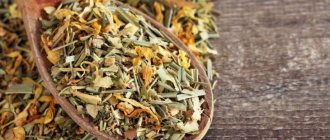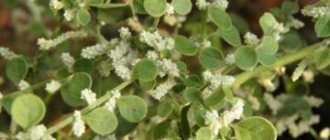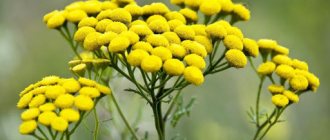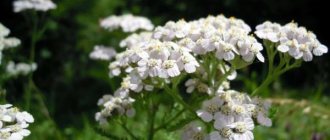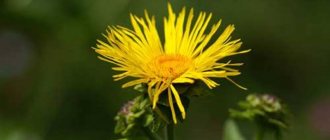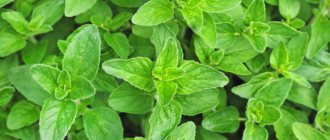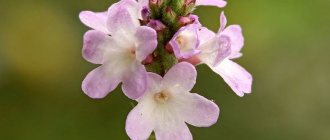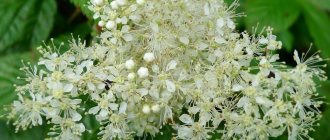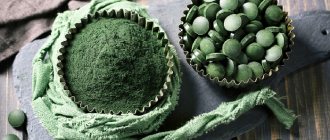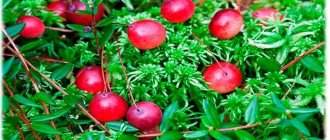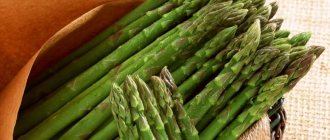10/09/2018 Olga Migunova 3 comments
Diuretic herbs have been used in folk medicine for centuries. A little over a hundred years ago, herbs or just one single plant helped solve the problem of excessive fluid accumulation in the body. Before the advent of drugs, humanity was saved only by folk methods. Some plants can solve not only the problem of the excretory system. Flowers, fruits, herbs, roots, leaves have a number of additional beneficial properties.
Traditional medicine does not ignore natural gifts, often using them in complex therapy. However, not all diuretic herbs are equally beneficial to patients. The doctor takes into account the specific effects and health status of the patient before prescribing.
General information about diuretic herbs
Herbs with diuretic effects are naturally occurring diuretics. They remove stagnant fluid from the body. If the dosages and doctor's recommendations are followed, the drugs do not cause harm to the patient.
Impact on the human body
The removal of fluid from the human body is due to the suppression of the action of the enzyme carbonic anhydrase. It promotes moisture retention in tissues by regulating hormonal balance.
Beneficial features
Diuretic herbs have the following beneficial properties:
The beneficial effects of diuretic herbs on the body.
- Relieves swelling. The tissues are freed from excess fluid. The lumen of physiological ducts increases. For example, blood vessels, veins and arteries. This occurs by reducing the pressure of excess moisture on the fabric. As a result, all organs function better and the load on them is reduced.
- Cleanse the body. Excess moisture removes various decay products, impurities and toxins. This prevents them from penetrating deep tissues and the bloodstream. As a result, it is possible to prevent intoxication and improve well-being in case of poisoning.
- Regulate pressure. When using diuretic herbs, the vascular lumen increases. It becomes easier for the heart to circulate blood, which leads to lower blood pressure and less strain on the muscle. Blood pressure becomes more stable, and surges occur less frequently.
- Supports kidney function. When taking diuretic herbs, the filtering function is stimulated. The kidneys are better at purifying water from impurities.
- Eliminating stagnation. Diuretics prevent water retention in the body. This is especially true for the urinary system. Herbs promote active fluid circulation. This prevents the development of infections and the formation of stones.
Some herbs have additional properties. For example, they can kill bacteria or promote the breakdown of kidney stones.
Many plants contain vitamins and minerals, which improve the patient’s general condition.
Why does swelling occur?
Swelling is not always a cause for concern, although it indicates changes in the body. For example, when a woman is expecting a child, serious changes occur inside her. The result of which is often the appearance of edema.
Excessive amounts of fluid accumulate in the body under other circumstances. There may be several reasons for this:
- Sedentary lifestyle.
- Pregnancy.
- Diseases associated with the spine, and some others.
The result is a rapid appearance and increase in the number of edema on the body.
But the most common cause is varicose veins. Blood stagnates in the venous vessels, which leads to an increase in fluid pressure on their internal walls. As a result, everything unnecessary comes out into the nearby tissues, which entails serious swelling, which can only be dealt with by using special medications.
Indications for use
The main indications for the use of homeopathic diuretics include cystitis, swelling, cardiovascular pathology, etc.
Swelling
Herbs directly affect the water-salt balance and remove excess moisture from the body.
This reduces swelling. However, for a sustainable effect, you need to identify the cause of swelling and fight it. In this case, plants are used only as a symptomatic remedy. An additional benefit of herbs is that they can be used to treat several conditions. They improve the condition of the cardiovascular and urinary systems at the same time.
List of the best diuretic herbs
The list of the best diuretic herbs includes milk thistle, thyme, calendula, horsetail, bearberry, etc. They differ in their effects and dosages.
Milk thistle
Milk thistle not only has a diuretic effect, but also cleanses the liver of toxins, accelerating cell regeneration. In the pharmacy the product can be found in the form of seeds, powder or meal. The first option is preferable, but you will have to grind the grains yourself to release the active substances. 2 tsp. raw materials pour 1 tbsp. boiling water, cover and leave for 15 minutes. Then the liquid is drained and drunk up to 3 times a day, regardless of meals.
Thyme
Thyme stimulates urination, relieves pain and inflammation, and destroys bacteria. It stimulates the digestion of food and, in case of pulmonary diseases, facilitates the removal of fluid from the bronchi. To prepare the medicine 1 tbsp. l. dried herbs, pour 200 ml of boiling water, leave for 20 minutes and filter. The product is drunk half an hour before meals, up to 4-5 times a day.
Thyme removes water and toxic substances from the body.
Calendula
Calendula relieves swelling and inflammation, destroys bacteria and viruses, strengthens the walls of blood vessels, and also activates regeneration processes. To brew tea, 2 tbsp. l. inflorescences are poured with 0.5 liters of boiling water. Cover the container with a lid and place in a dark place for 15 minutes. At the end, the liquid is filtered. Drink 100 ml of tea up to 3 times a day.
Horsetail
Horsetail enhances fluid removal, stops bleeding, enhances tissue regeneration and relieves inflammation. The plant has an antimicrobial effect, improves the condition of the renal ducts and vascular walls, which is most useful for cystitis and pyelonephritis. The medicine is prepared from 4 tbsp. l. dry horsetail. It is poured with 0.5 liters of boiling water and left for 20 minutes. The product is drunk warm. Dosage - 2 tbsp. l. infusion up to 3 times a day 30 minutes before meals.
Bearberry
Bearberry helps remove excess moisture from the body by irritating the kidney tissue. The product has anti-inflammatory and antiseptic properties. To prepare the decoction 1 tbsp. l. dry leaves are ground to a powder. 250 ml of hot water is poured into the mass. The mixture is placed in a water bath for 20 minutes, then allowed to brew for 40 minutes and filtered. After this, the volume is adjusted to the original volume by adding water. The drug is taken 50 ml half an hour after meals up to 3 times a day.
Bearberry normalizes metabolism and eliminates swelling.
Rose hip
Rosehip not only removes moisture from tissues, but also has an anti-cancer and anti-inflammatory effect. It protects the kidneys and liver, prevents the development of cancer, and heals wounds. 1 tbsp. l. The berries are passed through a meat grinder, placed in a saucepan and poured with 0.5 liters of boiling water. Cover the container with a lid and steam for 30 minutes. Then filter the liquid, pour in another 2 cups of boiling water and leave again for half an hour. Ready-made tea is drunk up to 3-4 times a day, 250 ml.
Nettle
Nettle has a diuretic, anti-inflammatory and antibacterial effect. It stops bleeding, normalizes the activity of the immune system, blood sugar and cholesterol levels. The product reduces pain in the back, neck and lower back, cleanses the body of toxins. The decoction is prepared from 1 tbsp. l. leaves and 1 tbsp. water. The mixture is brought to a boil. Leave the container under a towel in a warm place for 1 hour. The finished broth is filtered. Take up to 1-2 glasses daily; for internal bleeding, the portion is increased to 1 liter.
Chamomile
Chamomile is not only a diuretic, but also an antispasmodic. This helps ease urination during cystitis. The product relieves inflammation, calms a person, dilates blood vessels, improves blood circulation. The infusion is prepared from 2 tbsp. l. inflorescences and 250 ml of boiling water. The mixture is left covered until completely cooled. The finished product is taken 1 tbsp. before meals up to 3 times a day.
Chamomile decoction is used in the treatment of many diseases, including cystitis.
Birch
Birch leaves are a natural diuretic, antiseptic and anti-inflammatory agent. They are often used for inflammatory pathologies of the urinary system. A decoction is prepared from 2 tsp. crushed leaves and 200 ml of hot water. The product is infused for 20 minutes, then filtered. Take 100 ml before meals twice a day.
Linden
Linden normalizes digestion, removes moisture through the bladder and skin pores, and reduces body temperature. A compress of flowers relieves headaches and treats burns. 1 tbsp. l. dried raw materials are poured with 200 ml of boiling water. The product is drunk warm before meals. This is done 2-3 times a day.
Valerian
Valerian is a weak diuretic. It copes better with edema than with cystitis or pyelonephritis. However, the plant has a beneficial effect on the heart. It is recommended to be used together with other herbs. You can add mint in a 1:1 ratio. 1 tbsp. l. collection pour 1 tbsp. boiling water, drink 200 ml once a day.
Motherwort
Motherwort has general strengthening properties. It improves the condition of the immune and nervous system, relieves swelling, relieves cramps, cough and inflammation. The product reduces pain. 1 tbsp. l. motherwort is poured with 300 ml of boiling water. The finished infusion is drunk 150 ml twice a day.
Motherwort decoction is used to treat diseases of the nervous system.
Mint
Mint not only helps remove moisture, but also disinfects tissues. It helps with flu and colds, relieves pain, and improves digestion. Tea is prepared from mint: 2 tsp. crushed raw materials, pour 200 ml of boiling water for 20 minutes. After filtering, drink the product up to 2-3 times a day.
Oregano
Oregano is often used in gynecology. It normalizes hormonal levels, protects the genitourinary system from tumors, and relieves inflammation. Men treat urethritis, prostatitis and infections with oregano. Tea is prepared from 2 tsp. dry herbs and 250 ml of hot water. The mixture is infused for half an hour. It is drunk before meals or between meals, 50-100 ml three times a day.
The course of treatment should not exceed 1 week.
List of other diuretic herbs
For convenience, diuretic herbs are divided into categories depending on their effect.
Medicinal fees
Among the medicinal fees, the following can be distinguished:
- Diuretic collection No. 1. Contains bearberry, cornflower and licorice in a 3:1:1 ratio. Removes moisture, destroys germs and suppresses infections.
- Diuretic collection No. 2. Contains licorice, bearberry and cornflower. The drug helps relieve pain in kidney pathologies and reduces foci of inflammation.
- Diuretic collection No. 3. Contains horsetail, juniper and wheatgrass root. The product is potent, so it is used with caution. Most often, the collection is prescribed to patients suffering from an allergy to licorice root.
- Collection of herbs No. 6. Contains lemongrass, corn silk, horsetail and chamomile. Helps restore water-salt balance.
Diuretic herbal mixtures are presented in various combinations.
Anti-inflammatory drugs
Relieving inflammation helps reduce pain due to pathologies of the urinary system.
This is useful for cystitis and pyelonephritis. Internal swelling disappears due to the elimination of stagnation and excessive blood flow to the damaged area. The most powerful anti-inflammatory diuretics are the following herbs:
- burdock root;
- pink radiola;
- stinging nettle;
- lingonberry leaves;
- parsley;
- corn silk;
- marshmallow
For hypertension and heart failure
For hypertension, it is advisable to take herbs that strengthen the walls of blood vessels. This promotes proper blood circulation and helps the cardiovascular system withstand high stress without side effects.
Herbal tea for hypertension strengthens the walls of blood vessels.
For heart failure and hypertension, the following herbs and berries are brewed:
- shepherd's purse;
- red rowan;
- swampy dried grass;
- barberry roots;
- motherwort;
- mint;
- lemon balm.
For facial swelling
If you experience frequent swelling of the face, it is recommended to pay attention to the symptom. Its location indirectly indicates the source of the problem. For example, swelling in the upper lip or brow ridges indicates cardiac pathology.
Swelling of the eyelids is a sign of kidney disease.
The following remedies help with facial swelling:
- half fell;
- flax seeds;
- beet leaves;
- corn silk.
A decoction of corn silk will eliminate swelling on the face.
For the kidneys
For infectious pathologies of the urinary system, horsetail and knotweed are used. Herbs increase fluid circulation, prevent congestion, destroy bacteria, and relieve inflammation from damaged tissues.
For swelling of the legs
Swelling of the legs is most often observed due to impaired lymph outflow, pathology of the liver, heart, thyroid gland, and renal failure.
To improve the condition, use chamomile, horsetail, bearberry, nettle or lemon balm.
For weight loss
Diuretic herbs are used as an adjuvant. On their own, they will not provide sustainable weight loss, but they can improve the results of diet and exercise. For weight loss, horsetail, bear ears, and lingonberry leaves are used. The latter are the mildest and safest remedy.
Side effects
By using diuretic herbs for swelling uncontrollably, there is a risk that symptoms of dehydration may appear:
- general malaise, weakness;
- headache;
- allergic reactions;
- discomfort in the lower abdomen;
- constant thirst;
- broken stool;
- convulsive conditions of the lower extremities;
- reluctance to eat;
- hormonal imbalance;
- cardiopalmus;
- impossibility of emptying the bladder when the urge appears.
It is important to note that the appearance of even one of the signs described above should serve as a reason to stop taking the herbal mixture. A more complex case may even require emergency assistance from specialists. Taking decoctions and infusions while expecting a baby, depending on the timing, can provoke a miscarriage or the threat of a frozen pregnancy.
Herbal diuretic tablets
The most popular herbal diuretics are:
- Cyston;
- Urolesan;
- Phytolysin;
- Canephron.
Popular herbal diuretic tablets.
Diuretics in tablet form are preferable because manufacturers include a balanced complex of herbs. The ingredients enhance each other's effects. It is more convenient for patients to take medicine in tablet form rather than brew dried plants.
Precautions and contraindications
Contraindications depend on the type of herb. The list will be different for each plant. Experts recommend either collecting herbs yourself or buying them at a pharmacy. The first option is preferable, since the points of sale most often end up with cake from which most of the beneficial substances have already been removed.
However, it is better to collect plants either in the field or in the garden.
Do not pick herbs in environmentally unfavorable areas or near roads.
Rules for collecting medicinal herbs.
When choosing a diuretic, preference should be given to a plant that is already familiar to the body or at least grows in your region. This will reduce the risk of allergies. Undesirable reactions can worsen the patient’s condition, especially with infectious and cardiac pathologies.
When brewing medicines, you must follow all the rules regarding the proportions of ingredients, preparation technology, etc. You cannot independently change the dosage of ready-made products or extend the course. This can only be done by a doctor after assessing the patient’s condition. Herbal diuretics can be taken longer than synthetic ones, but this cannot be done on an ongoing basis. Otherwise, the metabolism will be disrupted and a deficiency of microelements will occur.
Useful tips
The main advice is to see a doctor. You should not decide on your own or on someone else’s advice the issue of using herbs to drain excess fluid.
Additional recommendations include the following.
- Strict adherence to recipes when preparing decoctions, tea, tinctures, etc.
- Use herbs purchased at pharmacies, and not from hand.
- You should not collect herbs for tea unless you have solid knowledge of what exactly and where to look. The collection of herbs for mixtures is carried out by herbalists with certain knowledge and experience.
- Before using herbs, it is recommended to scald the composition with boiling water to remove dust and dirt.
- The compositions should be used the permitted number of times. You should not either prolong your course of treatment or prescribe herbs on your own.
